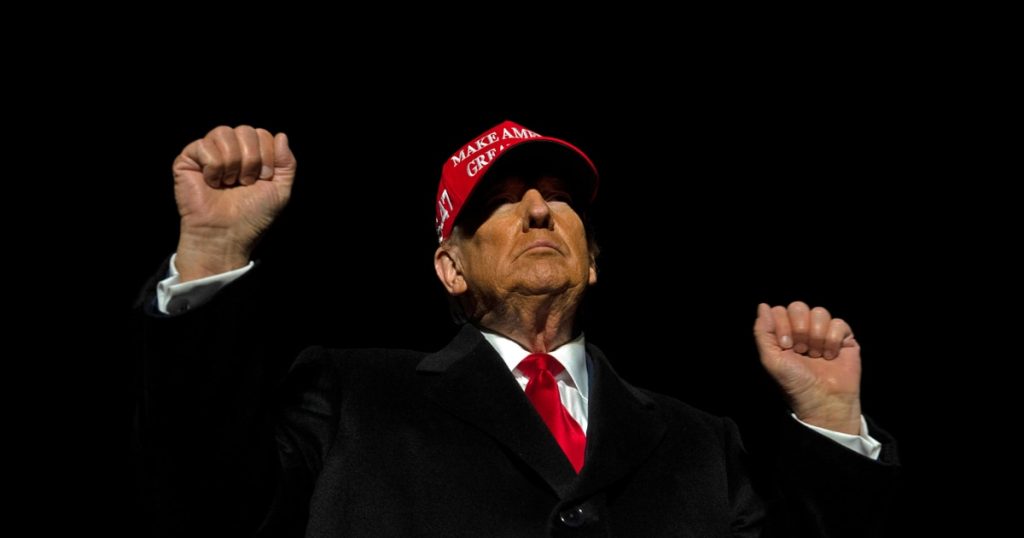Former President Donald Trump is formulating an economic agenda for a potential second term that includes raising tariffs, cutting taxes, and pursuing a cheap money policy. Despite experts warning that these measures could lead to inflation, Trump has dismissed those concerns and believes they would benefit the country. He plans to increase tariffs on imports, extend tax cuts, and possibly replace Federal Reserve Chairman Jerome Powell to lower interest rates.
Analysts predict that Trump’s proposals could increase inflation as they would impact trade deficits, the value of the dollar, deficits, immigration policies, and the Federal Reserve’s independence. Businesses typically pass on higher import costs to consumers through increased prices, which could drive inflation even higher. While some short-term impacts may be absorbed by suppliers diversifying their inventory away from tariff-exposed products, the overall effect is likely to be inflationary.
Despite the potential inflationary consequences, voters have shown a nostalgic trust in Trump’s economic management over Biden’s ability to manage inflation and reduce the cost of living. This sentiment may stem from the fluctuations in the consumer price index over the past few years, which saw a decrease during Trump’s presidency followed by a spike under Biden driven by post-pandemic demand and supply chain disruptions. This shift in the inflation rate has left a lasting imprint on voters’ minds and highlighted the importance of economic policies in the election.
Trump has used the recent inflation data to criticize Biden and the Federal Reserve, claiming that inflation is escalating and they are unable to effectively address it. Biden, on the other hand, has highlighted his economic accomplishments, such as low unemployment, GDP growth, and clean energy investments, while also considering trade restrictions on China. Trump’s messaging on inflation and the economy has resonated with voters who may have been negatively impacted by the recent inflation surge, reinforcing their belief in the effectiveness of his economic policies.
The upcoming election is likely to be influenced by voters’ perceptions of past economic performance and their expectations for future economic management. Trump’s proposed economic agenda, if implemented, could have inflationary consequences that dampen the overall economic outlook. However, his messaging on inflation and cost of living may continue to resonate with voters who prioritize economic stability and affordability. Biden, meanwhile, faces the challenge of presenting his economic achievements in a positive light amidst growing concerns about inflation and trade policies.


